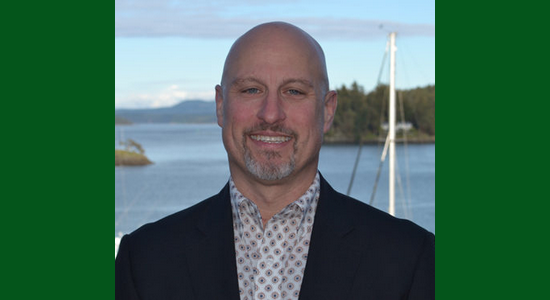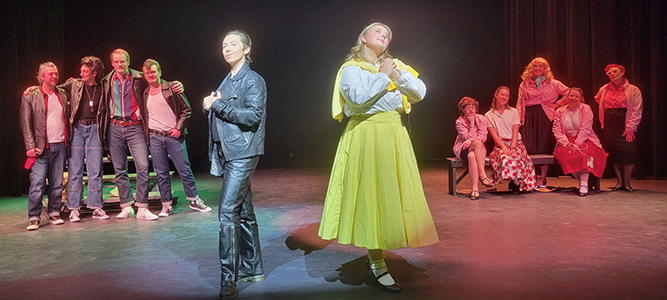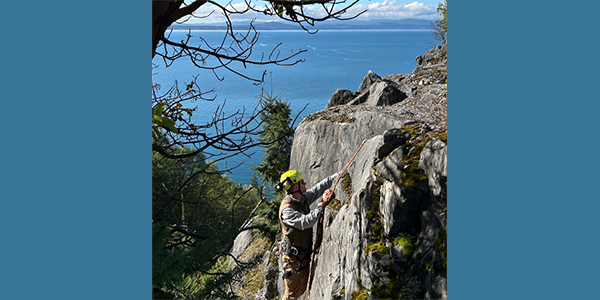||| FROM TATE THOMPSON for THE WHALE MUSEUM |||
Join us on September 14 at 7 p.m. for a virtual lecture presented by Julie Watson. FREE and open to the public.
The critically endangered Southern Resident Orca (also known as Southern Resident Killer Whales or SRKW) population stands at just 73 members as of the 2022 census, and they face several major threats including availability of their preferred food (Chinook salmon), contaminants in their food and environment and noise and disturbance from vessels.
Following recommendations from Governor Inslee’s Orca Task Force and major legislation in 2019, the Washington State Legislature tasked the Washington Department of Fish and Wildlife (WDFW) with management of commercial whale watching licensing, development of rules for commercial viewing of SRKW and adaptive management of measures aimed to reduce the impact of recreational and commercial whale watching vessels on SRKW’s ability to successfully forage, communicate and rest.
While changes to the general vessel speed and approach distance were implemented in the 2019 legislation (SB 5577), the Commercial Whale Watching Licensing Program and rules for commercial viewing of SRKW were implemented at the start of 2021. Thus, WDFW had only a window of a few short seasons — seasons which varied substantially as the COVID-19 pandemic evolved, as whale presence and status varied and as the statute continued to evolve — from which to glean insight on effectiveness and changes in science. Nonetheless, a few key advancements in the science were published, and the variability over a couple years of implementation allowed some unique insights into program effectiveness and opportunities for improvement.
This presentation describes the Department’s process for adaptive management of Washington State’s vessel regulations to better support the recovery of SRKW. It also tells the story of the 2023 bill (SB 5371) implementing the Department’s recommendation to increase the distance buffer around SRKW, next steps to implement the bill, and the ongoing adaptive management effort. Here is the Zoom link to the presentation.
Julie Watson joined the Washington Department of Fish and Wildlife (WDFW) in 2016 and was the Puget Sound Recovery Lead prior to becoming the agency’s Killer Whale Policy Lead in 2019. She received her Ph.D. in Geography and MS in Water Resources Policy and Management from Oregon State University, and she has a dual BA in Political Science and Psychology from Pennsylvania State University. Julie is the lead for developing the commercial whale watching licensing program and rules regarding commercial viewing of Southern Resident Killer Whales.
For more information, call (360) 378-4710 ext.30. The Whale Museum is located in Friday Harbor at 62 First St. N.
Founded in 1976, The Whale Museum’s mission is to promote stewardship of whales through education and research. Learn more at whalemuseum.org.
**If you are reading theOrcasonian for free, thank your fellow islanders. If you would like to support theOrcasonian CLICK HERE to set your modestly-priced, voluntary subscription. Otherwise, no worries; we’re happy to share with you.**








